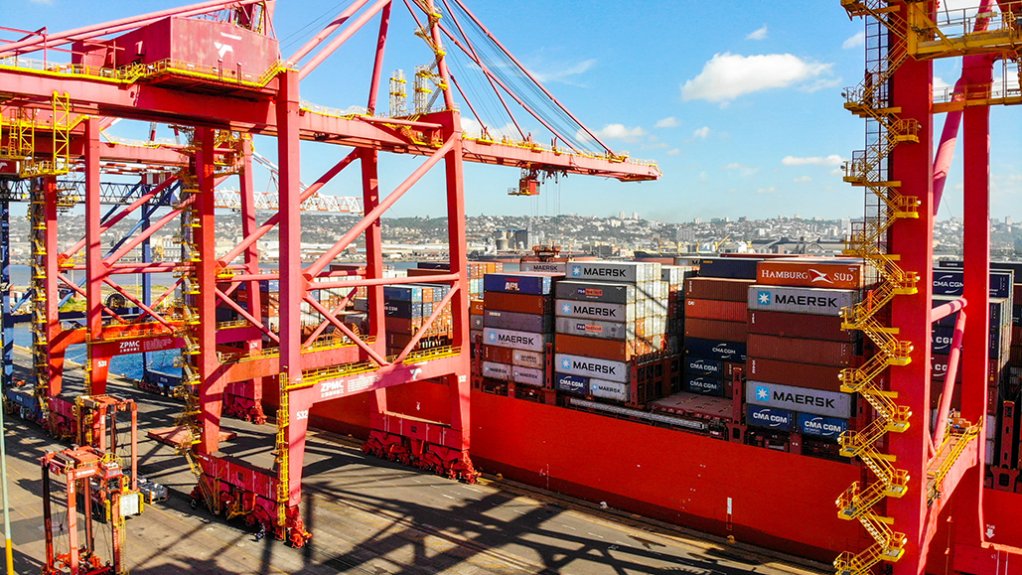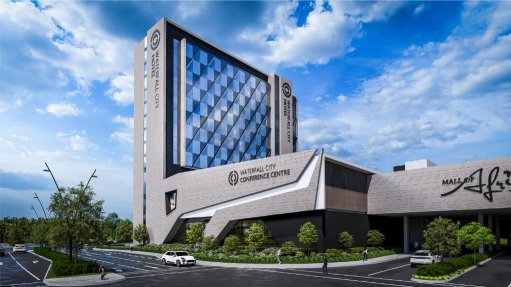TPT engaging OEMs to address ageing equipment


FRESHENING UP THE FLEET Long-term partnerships with original-equipment manufacturers are expected to support Transnet Port Terminal’s drive to acquire much-needed replacement equipment to address the aging fleet but also help standardise the fleet
Transnet Port Terminals (TPT), a division of State-owned company Transnet, has started a process to engage with original-equipment manufacturers (OEMs) to establish long-term partnerships.
The process aims to ensure the standardisation of equipment and spares to improve plant reliability as part of TPT’s capital investment plan for the replacement and refurbishment of equipment that has exceeded or is nearing end-of-life.
The poor state of equipment is the key challenge hindering the optimal performance of South Africa’s port infrastructure, says TPT CEO Jabu Mdaki.
Consequently, local ports have been ranked among the world’s worst performers in the second edition of the Container Ports Performance Index, published by the World Bank and S&P Global Market Intelligence last year.
However, TPT has, from the onset, queried the methodology that was applied in the index ranking, notes Mdaki.
TPT has contracted booking slots with shipping lines and is successfully working closely with the industry to meet these slots.
“Essentially, [the index] collated information from various shipping lines relating to the ship waiting times at various ports. The Port of Durban is operating at capacity, which means there is continuous pressure to attend to arriving vessels in need of service, whereas other ports may not have this constraint. Therefore, they have a shorter waiting time, even if their operational efficiency was not ideal.”
Further, while the index is specific to container vessels, the results for Durban included the performance of multipurpose terminals, which do not have the specialised container handling superstructure of a dedicated container terminal, adversely impacting on Durban’s ranking, explains Mdaki.
“TPT’s business is a lot bigger than containers. Yes, the container sector is significant to the economy, but so are the other sectors, especially the dry bulk sector, which includes mining and agriculture, and the automotive sector. TPT has performed very well in these sectors and operational performance has largely met customer expectations.”
TPT has also resuscitated the Durban Agribulk Terminal, which has been meeting its budgeted volumes.
Addressing the Issue
Mdaki emphasises the need to prioritise capital investment in the aged equipment fleet, which operates 24/7, at the country’s ports.
TPT has developed an overarching programme to improve maintenance and enhance the use of key equipment by increasing its capacity to effectively execute refurbishment projects and leverage expertise from external parties to improve key maintenance and refurbishment activities.
“We are very excited about long-term partnerships with OEMs. This will not only support the drive to acquire much-needed replacement equipment but also help standardise the fleet, which reduces maintenance complexity and working capital requirements by creating an optimised spares list.
“TPT’s capital investment plan also includes medium- and long-term budgets to address the historical impact of the lack of maintenance on plant and machinery.”
The long-term OEM partnerships will too be used to increase the local manufacturing of components for equipment, which is key to the development of the South African economy, he adds.
In addition, TPT has embarked on a project to implement the remote operation of equipment to reduce equipment down-time, especially during inclement weather.
“A concerted effort is also being made to ramp up human resources as per operational requirements with respect to equipment operators, planning officials and other key personnel. The recruitment drive also includes technical personnel who are critical in maintenance and refurbishment activities, as well as recruitment and procurement specialists that are key to supporting the operations and technical teams.”
The upskilling of operations personnel is another focus and includes equipment operator certification and operational planning skills. Operations personnel will be exposed to the latest technology to aid operational planning and execution.
Funding
“It is important to note that Transnet is not funded by government in any way, but self-funded – either by cash generated from its operations and/or loans secured on the strength of its balance sheet,” highlights Mdaki.
TPT is also leveraging private-sector participation transactions to gain access to funds, markets and/or volumes and international terminal operation best practices to enhance operational efficiencies to improve service delivery and, possibly, unlock additional capacity, which could increase volumes and revenues in the long term.
Two such transactions involve the Port of Durban, in KwaZulu-Natal, and the Port of Ngqura, in the Eastern Cape, which are both in the tender stage, with responses expected next month. Negotiation and project agreements are expected to be concluded by December this year.
The objective for the Durban Container Terminal Pier 2 is to improve operational efficiencies, while the Ngqura Container Terminal requires access to markets to improve volume throughput and profitability.
“In essence, any decision on a private-sector participation must make sense from a business and a financial perspective in terms of the gains to the terminal and the economy at large,” states Mdaki.
He notes that TPT is at a disadvantage to emerge from the enormous challenges that have constrained the business and its contribution to the economy.
“The positive is that there is a robust plan in place and actions have already been put in motion to arrest the root causes of the historical poor operational performance. We are committed to turning this around and growing our business and the South African economy. It’s not going to be easy, but nothing that is worthwhile ever is,” concludes Mdaki, adding that TPT enjoys the full support of its customers and stakeholders.
Article Enquiry
Email Article
Save Article
Feedback
To advertise email advertising@creamermedia.co.za or click here
Announcements
What's On
Subscribe to improve your user experience...
Option 1 (equivalent of R125 a month):
Receive a weekly copy of Creamer Media's Engineering News & Mining Weekly magazine
(print copy for those in South Africa and e-magazine for those outside of South Africa)
Receive daily email newsletters
Access to full search results
Access archive of magazine back copies
Access to Projects in Progress
Access to ONE Research Report of your choice in PDF format
Option 2 (equivalent of R375 a month):
All benefits from Option 1
PLUS
Access to Creamer Media's Research Channel Africa for ALL Research Reports, in PDF format, on various industrial and mining sectors
including Electricity; Water; Energy Transition; Hydrogen; Roads, Rail and Ports; Coal; Gold; Platinum; Battery Metals; etc.
Already a subscriber?
Forgotten your password?
Receive weekly copy of Creamer Media's Engineering News & Mining Weekly magazine (print copy for those in South Africa and e-magazine for those outside of South Africa)
➕
Recieve daily email newsletters
➕
Access to full search results
➕
Access archive of magazine back copies
➕
Access to Projects in Progress
➕
Access to ONE Research Report of your choice in PDF format
RESEARCH CHANNEL AFRICA
R4500 (equivalent of R375 a month)
SUBSCRIBEAll benefits from Option 1
➕
Access to Creamer Media's Research Channel Africa for ALL Research Reports on various industrial and mining sectors, in PDF format, including on:
Electricity
➕
Water
➕
Energy Transition
➕
Hydrogen
➕
Roads, Rail and Ports
➕
Coal
➕
Gold
➕
Platinum
➕
Battery Metals
➕
etc.
Receive all benefits from Option 1 or Option 2 delivered to numerous people at your company
➕
Multiple User names and Passwords for simultaneous log-ins
➕
Intranet integration access to all in your organisation


















